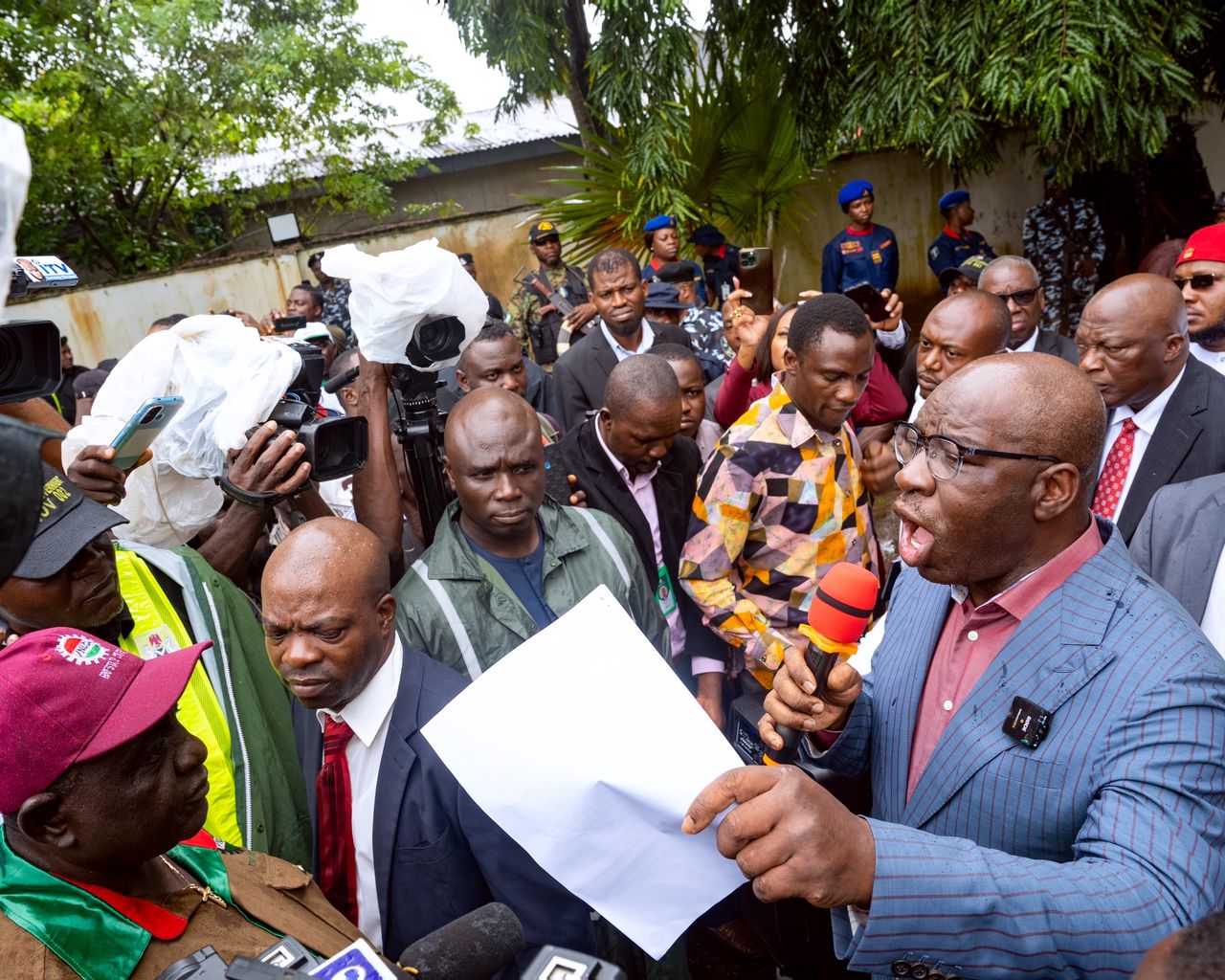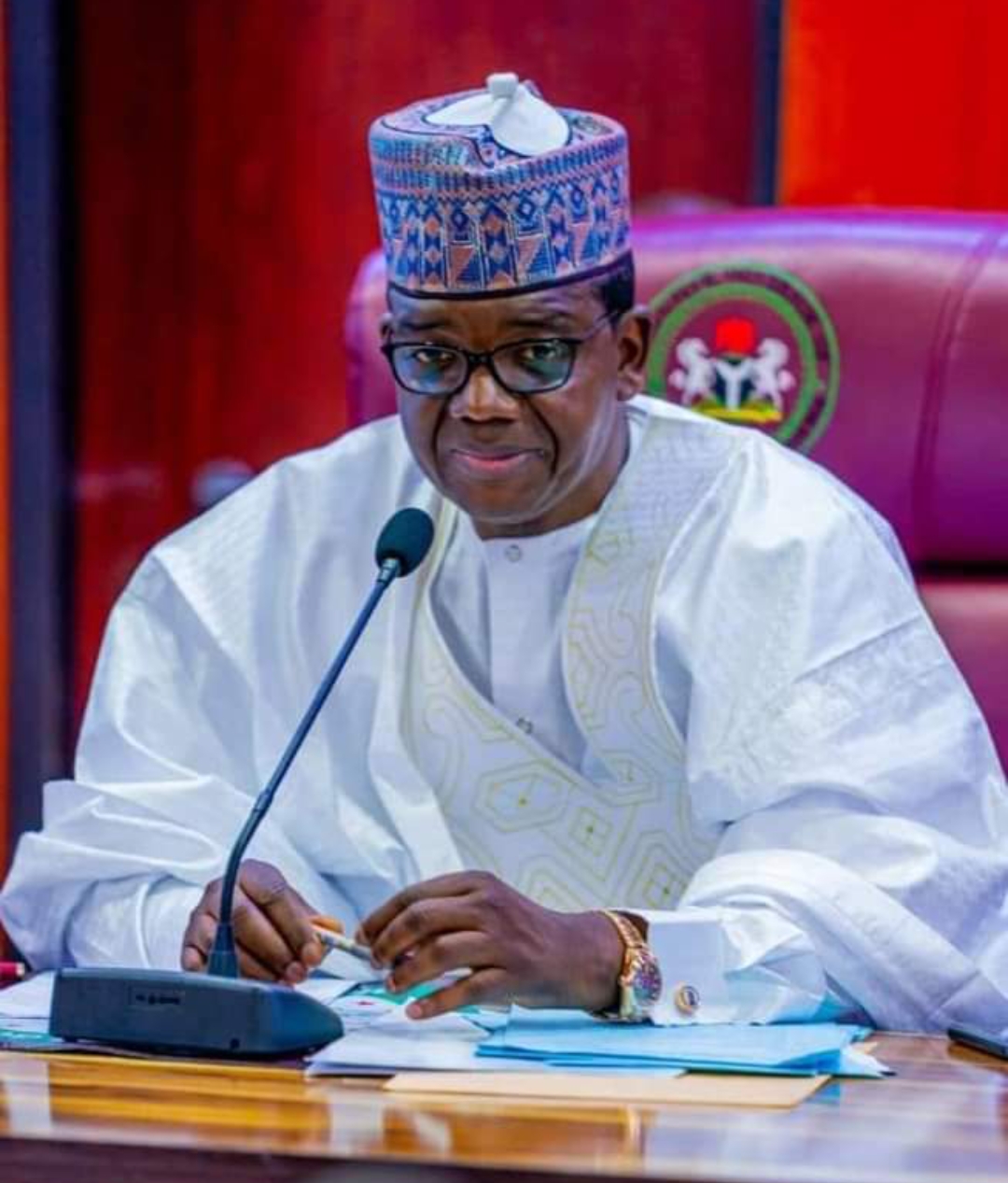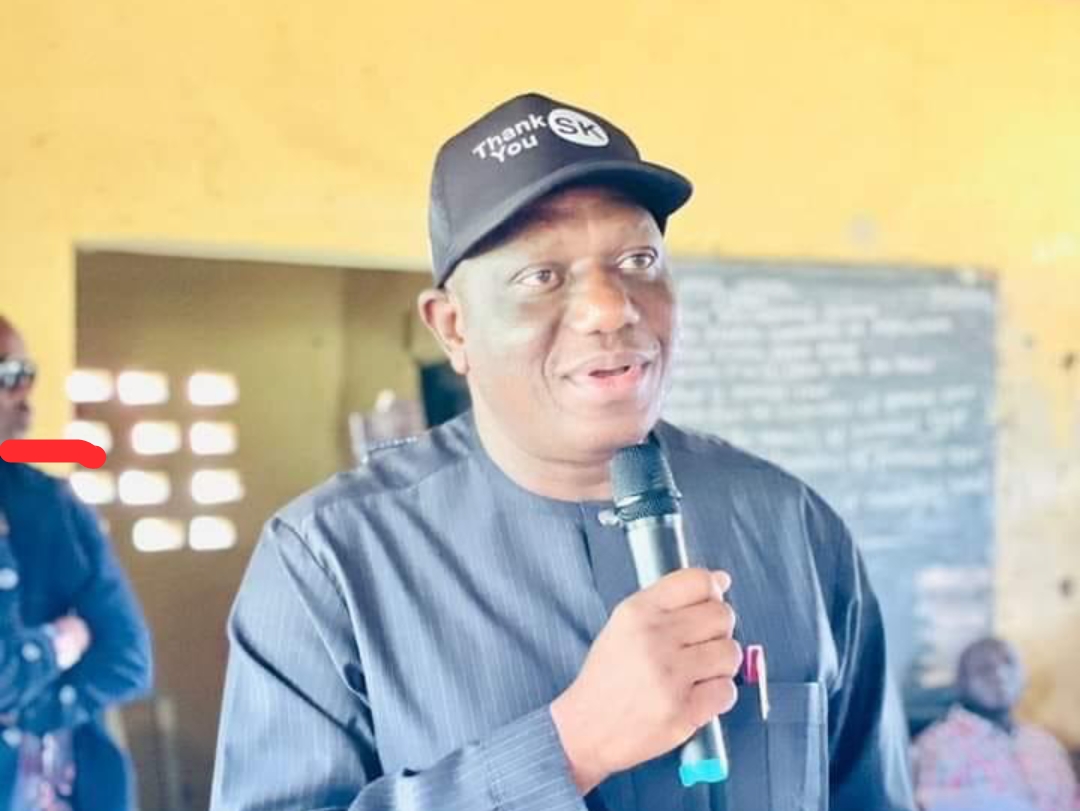…says workers’ wages must reflect current reality
The Edo State Governor, Mr. Godwin Obaseki, has said his administration will disburse N500 million monthly to poor households in the State as palliative to cushion the effect of the economic hardship caused by the subsidy removal by the All Progressives Congress (APC) Federal Government.
Obaseki disclosed this while speaking to members of the Edo State Chapter of the Nigeria Labour Congress (NLC) led by the Chairman, Odion Olaye and other labour unions, who were at the Government House, Benin City, on a peaceful protest over the hardship faced by workers and Nigerians as a result of the subsidy removal.
Reaffirming his government’s commitment to the welfare and well-being of workers and all Edo people, Obaseki said his government will sustain efforts to reduce the suffering and hardship inflicted on the people by the APC-led federal government.
According to him, “The APC government has thrown us into this mess and we can’t ignore this fact but as Nigerians, we will do something about it. It may take time but we will prevail.”
He continued: “On May 1st this year, I warned Labour that we are likely to face the condition and situation we face today. I warned you in that speech not to wait but be proactive and plan ahead. Look at where we are today.
“We in Edo State will do our own bit and I have decided that every month, going forward, we will take N500 million from our money to give to the poorest of the poor in Edo State.”
The governor further charged, “I want to alert you to reject the palliative they want to give to you. It’s a continuation of the fraud that the Federal Government has always undertaken against the people of Nigeria. The so-called money for palliative should be given to the local government which is closer to the people to take care of their people.
“You can’t buy grains from Abuja because the money to transport it alone is enough to take care of the people. We should stop this palliative fraud in Nigeria. I call on the Nigerian Labour Congress to reject the Federal Government’s palliative. Let them give local governments the money to give to the people as the Federal Government doesn’t have any business buying grains as palliative to be distributed across the 774 LGAs in Nigeria.”
He added: “We must stop this fraud. We are suffering too much in Nigeria and the Federal Government is insensitive to the plight of the people. In Edo State, we are labour-friendly and have increased our minimum wage two years ago N40, 000). The situation was not as bad as this before we took that step. We know that workers are suffering and need to do something about it as the take-home pay can’t take workers home anymore.”
Commending workers for their resilience, the governor stated, “I thank you for the peaceful protest and as citizens you have every right to protest against any issue you are not happy about as you are acting on your constitutional rights. We support the action of the NLC that your wages must reflect the current reality. I have received your letter and will send it to the President of Nigeria.”
In his response, Comrade Olaye lauded the governor’s commitment to the welfare of workers in the State, as he has provided measures to cushion the effect of the fuel subsidy removal on the workers and other residents.
He said, “We, the NLC are here today to register our displeasure over the economic hardship in the country. We are supposed to go on a nationwide strike but we were restrained by the Federal Government.
“The removal of fuel subsidy has caused hardship to all the citizens of the nation. We thank you Mr. Governor for reducing the working days of civil servants to three days in a week. We appeal to the President of Nigeria to allow Nigerians to breathe.
“We want the Federal Government to fix the three refineries we have in Nigeria and also give license to the Modular Refinery in Edo State so it can refine products and sell to Nigerians.”
Olaye added, “Fuel price has been increased by 300 per cent so workers’ salaries should also be increased by 300 per cent.”











